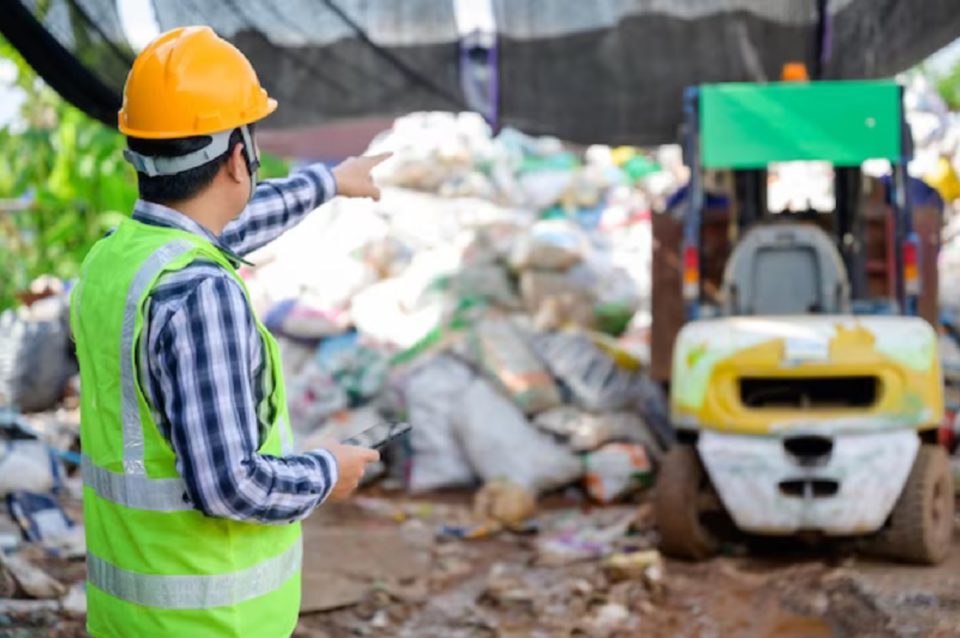We are facing rapid environmental changes due to unprecedented levels of human-induced pollution, climate change, and habitat destruction. Waste management contributes to a large portion of these global environmental problems as it involves the generation, collection, transport, treatment, and disposal of waste materials. Effective waste management strategies can help reduce the amount of waste produced and mitigate its impact on the environment. This article examines some key tactics for creating more sustainable future through improved waste management practices.
As the global population continues to grow, it is becoming increasingly important to develop sustainable waste management strategies. These strategies help reduce environmental pollution, conserve resources, and protect human health.
This article will provide an overview of effective waste management strategies for a more sustainable future.
Reduction & Reuse Strategies:
The most effective way to address waste issues is to reduce how much new material is created by emphasizing reuse instead of production. Reusing existing items wherever possible helps conserve resources while also eliminating potential sources of pollution during manufacture and transportation. Examples of reuse strategies include encouraging people to return containers and packaging for refills, using refillable water bottles instead of disposable ones, donating used furniture or clothing to thrift stores, organizing donation drives for unwanted items, and promoting the upcycling of materials.
Reducing consumption is another important way to reduce waste. Consumers should be encouraged to buy products that are durable and long lasting instead of disposable items. When possible, consumers should also look for ways to reuse or repair existing items before purchasing new ones. These strategies help conserve natural resources by reducing demand for newly manufactured goods as well as decreasing air and water pollution related to production processes.
Composting:
Organic waste such as food scraps, yard clippings, and paper products can be composted at home or in community gardens. Composting is a great way to reduce the amount of organic waste that is sent to landfills while also providing nutrient-rich soil for gardening projects. It is important to note that certain types of material should not be composted due to possible health risks or contamination issues (e.g., meat scraps).
Composting is another popular waste management strategy that can have a great impact on the environment. Composting involves breaking down organic materials such as yard waste, food scraps and paper into nutrient-rich soil amendment. This process reduces landfill space required for disposal and can improve soil fertility, helping to restore degraded land. Composting also reduces methane emissions associated with rotting garbage in landfills.
Recycling:
Recycling is the process of collecting, sorting, and processing used materials such as paper, plastic, glass, and metal for reuse in new products. This helps reduce the amount of waste sent to landfills while also conserving energy and natural resources that would otherwise be used to create new materials from raw materials. In addition, recycling can help reduce greenhouse gas emissions by decreasing the need for energy-intensive manufacturing processes.
One of the most basic and widely-used waste management strategies is recycling. Recycling helps preserve natural resources by reducing the need for virgin materials. It also reduces air and water pollution associated with production processes and decreases landfill space required for disposal. Additionally, recycling programs can create jobs in collection, sorting and processing industries.
Hazardous Waste Management:
Effective management of hazardous waste is essential to protecting human health and the environment. Hazardous materials should be stored and disposed of properly in order to prevent contamination of air, water and soil. These materials should also be managed separately from non-hazardous wastes in order to minimize risk of exposure or accidental release into the environment.
Proper Disposal:
When all else fails, proper disposal should be a last resort. Hazardous or infectious wastes must always be handled and disposed of properly to minimize environmental contamination. In addition, it is important to ensure that any hazardous material is disposed of in a safe and regulated manner that meets both local and federal regulations.
Conclusion:
As per Rid-Of-It Vancouver Junk Removal of Vancouver, the strategies outlined above are just some of the ways we can work towards a more sustainable future. By reducing consumption, recycling, composting and managing hazardous waste properly, we can help reduce environmental pollution and conserve resources for future generations. With continued commitment and effort, we can create a healthier planet for all living things.
